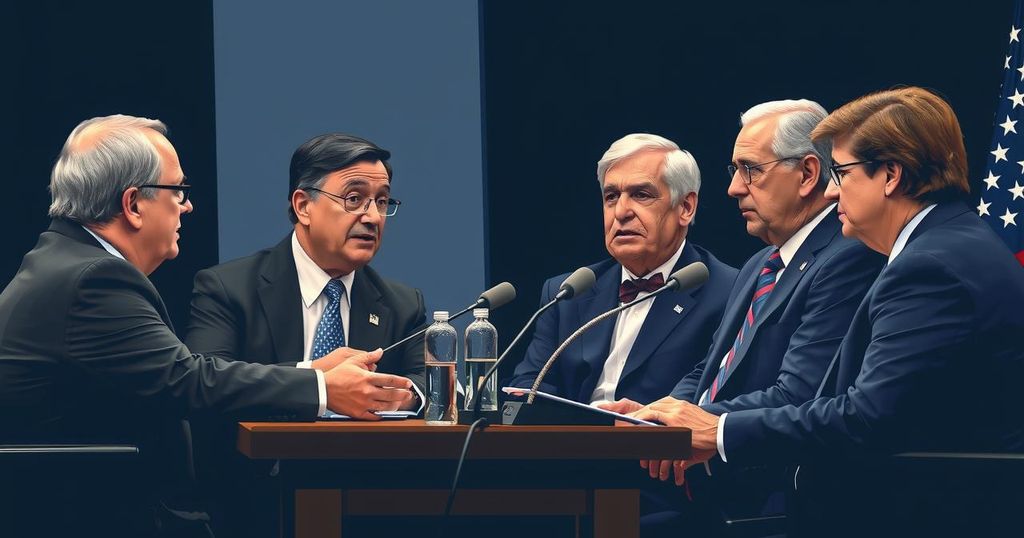Utah Governor Spencer Cox called for reflection among Democratic and Republican leaders after the 2024 elections, which revealed significant shifts in voter demographics. He noted Trump’s unforeseen gains among Black and Latino voters and urged both parties to learn from these developments. Cox expressed hope that thoughtful evaluation and dialogue would cultivate more inclusive political engagement moving forward.
Utah Governor Spencer Cox emphasized the need for both Democratic and Republican parties to reflect on the significant voter realignment revealed in the 2024 elections, which he characterized as an “earthquake.” During a recent meeting with editorial boards, he discussed the implications of the razor-thin margins by which Republicans secured their electoral wins across the presidency, U.S. House, and U.S. Senate. He noted this election demonstrated unexpected demographic shifts, particularly regarding support for President-elect Donald Trump among Black and Latino voters, which challenges prior assumptions about voter behavior.
Cox specifically highlighted that his predictions for Trump’s victories in key swing states, such as Pennsylvania and Michigan, stemmed from Trump’s appeal to blue-collar workers. Despite acknowledging President Joe Biden’s similar ability to connect with the working-class demographic, he expressed skepticism regarding the Democratic candidate’s efficacy to resonate with these voters, particularly in reference to Kamala Harris. Moreover, Governor Cox raised concerns about whether the Democratic Party has learned from the recent election outcomes, noting the inquiries coming from Democratic governors for deeper understanding.
Cox praised the resilience of Democratic governors who possess appealing characteristics to different segments of the populace. He urged Republicans to engage in critical self-reflection as well, expressing the notion that dismissing election results as merely a consequence of inflation fails to account for broader societal opportunities for learning and growth.
The comments made by Governor Spencer Cox arise in the context of the 2024 election, which saw a notable shift in voter demographics and alignments between traditional party lines. Historically, elections have been analyzed based on gender and other demographic categories, but the recent results indicate that these traditional metrics may not fully encompass voter motivations and choices. The outcome underscored the complexity of America’s political landscape, showcasing evolving alliances notably evident in the support for President-elect Donald Trump across diverse racial groups. Cox’s insights reflect a call for reflection and strategic adaptation among party leaders to respond to these changing dynamics, aiming for a more inclusive and representative political dialogue.
In conclusion, Governor Cox’s observations signal a pivotal moment for both Democrats and Republicans following the 2024 election. His characterization of the election as an “earthquake” highlights the unexpected shifts in voter demographics that challenge traditional party narratives and assumptions. By advocating for introspection among both parties, Cox underscores the necessity for political leaders to adapt to the evolving electorate and seek to connect with a diverse array of constituents to ensure future electoral success.
Original Source: www.deseret.com






